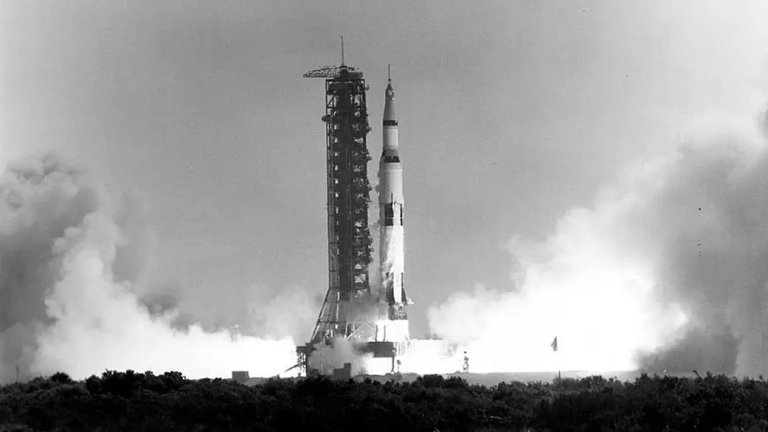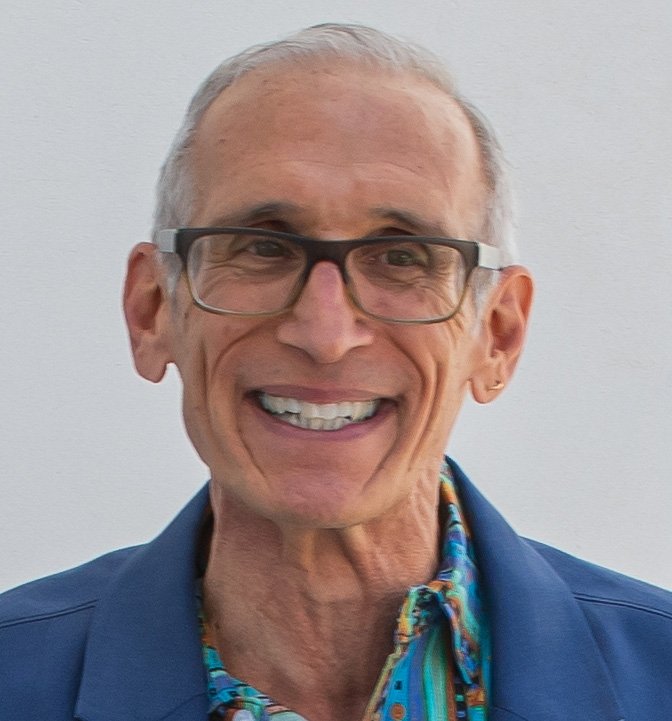Blasting Off
How our science dean’s love of science launched at the same time as a history-making rocket

By Ulysses J. “UJ” Sofia

One of my earliest childhood memories involves being a witness to a milestone in science history.
I was just about three years old at the time, and my father was an astrophysicist at the University of South Florida. The year was 1969, and Florida was a busy place for the U.S. space program.
My father and all the other astrophysicist faculty members at his university and neighboring universities were invited by NASA to Cape Kennedy to watch the launch of Apollo 11, which marked the first time that humans landed on the moon.
I don’t remember much—I was just a toddler—but I do remember looking out across a body of water at the Saturn V rocket standing on the launch pad. I remember my father holding my hand and telling me to pay close attention.
“You’re going to want to remember this,” he said.
My memory of that launch is tied to a really visceral feeling. I still remember how the blastoff felt—the rumbling of the rockets, the pulsing power that we felt in our chests as we stood there and watched. And the loud sounds as the rocket lifted off, and the white piles of smoke underneath it.
Something happened to me that day. I hadn’t just witnessed a history-making moment, I knew in my bones I wanted to be a scientist. Even though I was too young to express it, I think I felt a desire to one day get involved in a world that produced exciting things like that rocket or made other exciting discoveries about the world around us.
As I grew older, that desire grew in me. I still wanted to be involved with exciting work in the sciences. When I was a teen, after I started out as an undergrad at Johns Hopkins and switched over to Wesleyan, I kept focusing until I realized I wanted to be an astrophysicist like my father.
Wesleyan was a better fit for me: It was much smaller than Johns Hopkins, and its liberal arts foundation enhanced my understanding of science. In many ways, I think that my time at Wesleyan taught me that the science experience at a smaller place, like The Claremont Colleges, has many advantages over larger research universities.
In Claremont, I think we’re at an important turning point in the science experience.
The construction and opening of our new science building, and the recasting of our new and old facilities as The Nucleus, presents something important for our Pitzer and Scripps science students. Our enhanced science facilities will add something to their experience that we’ve been looking forward to for years: It’s not just the beautiful new facilities and equipment, but it’s also a special feeling of community that is so important in the sciences.
For a long time, many of our faculty and students were spread out in portable trailers on the campuses of Pitzer, Scripps, and Claremont McKenna (whose participation in our collaborative science program ends this year). Now, with the opening of the new building, everyone can come home and learn together under the same roof.
As a dean, I do less teaching and spend more time on my administrative role in leading our Department of Natural Sciences. There’s a lot to be done as a dean, and it can be challenging overseeing so many faculty and reporting up to two colleges, but that’s OK. It has helped me find another way to have a positive impact on our students.
What do I mean by “another way”? At The Claremont Colleges, I want our students to be inspired. I want to create new opportunities for them to feel some of the same excitement that I felt on that long-ago day at Cape Kennedy. Even though there aren’t any rocket engines firing up, I want our students to feel an exciting rumbling in their chests as they make their own discoveries.
Our world needs good scientists, especially now. I want our students impassioned to become members of the next generation of scientists who are going to expand our understanding of the cosmos and help us better understand our place in it.
Ulysses J. Sofia is Weinberg Family Dean and Professor of Physics in the Department of Natural Sciences of Pitzer and Scripps Colleges.